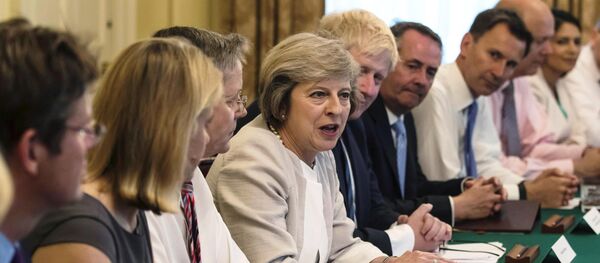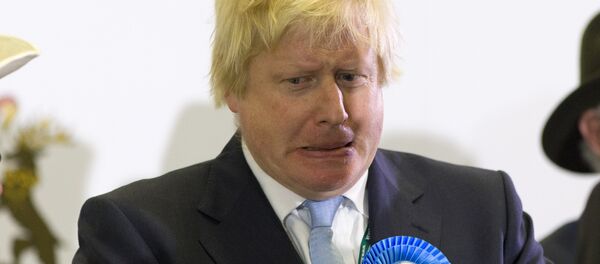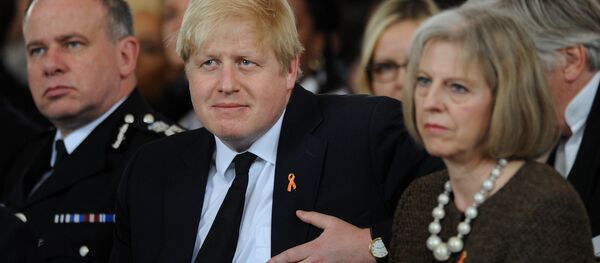Suspicions are growing all the time that the government, for all its "Brexit Means Brexit" talk, is planning to kick the UK's exit from the EU into the long grass. Last week, we were told that the government does not intend to trigger Article 50 in 2016.
TM: “The country voted to leave the EU, and as Prime Minister I will make sure we leave the EU” #TM4PM pic.twitter.com/msvZCRTosq
— Theresa May (@theresa_may) July 11, 2016
Then, during the weekend, Patrick McLoughlin, the new Tory Party chairman, extended the deadline still further, saying that Article 50 would be triggered before the next election — which is likely to be in 2020!
Four years to kick-start the procedure for Britain leaving the EU?
If Article 50 is not going to be sent off in 2016, the year that the British people voted to leave the EU — do we really believe it's going to be sent off in 2020?
Keep Your Advocates Close and Your Critics Closer
Brexiteers certainly had misgivings when the Establishment-approved "Remain" supporter, Theresa May, was crowned the new Tory leader and Prime Minister of Britain, in July.
However, her appointment of the so-called "Three Brexiteers": Boris Johnson, David Davis and Dr Liam Fox, to key government position went some way in assuaging their concerns. Surely there could be no backsliding with these committed euroskeptics in the government?
But another interpretation is that May gave the trio top jobs because she wanted to keep her potential critics on side, and bound by the rules of collective ministerial responsibility. If so, she wouldn't be the first Prime Minister to pursue such a strategy. It was the same sort of thinking that arguably lay behind Clement Attlee's appointment of left-winger John Strachey as Minister of War in 1950.
Strachey had been "the leading communist commentator of his day," to quote Paul Routledge's "The Bumper Book of British Lefties." But as Minister of War, he campaigned for higher defense ostensibly to contain the "threat" of communism for which he had "ardently campaigned."
In the same way that only Nixon could go to China, only ministers who campaigned for Brexit, can "sell" to a euroskeptic British public, a Brexit delay.
And of course there's the added bonus, that if/when things do go wrong in negotiations with the EU — then the "Leavers' in the government can be made the scapegoats. From a Remainer's perspective, what's there not to like with such a strategy?
No Longer 'Bringing It On'
Already we can see evidence of a softening in the line of those who just six weeks ago were making passionate speeches about the sheer awfulness of the EU and the urgent need for Britain to become an "independent" country once again.
In his first major speech as Foreign Secretary, Boris Johnson actually pledged closer ties between Britain and Europe — saying that links would be "intensified."
Last week, Johnson once again went to great pains to stress that:
"[Brexit] in no sense means we are leaving Europe. We are not going to be in any way abandoning our leading role in European participation and co-operation of all kinds."
Even Brexit Minister, David Davis — thought to be about as hardcore a euroskeptic as one could get — has called for "taking a little time before triggering Article 50."
The Brexit Minister has predicted a likely UK exit from the EU in/or around December 2018. Meanwhile Liam Fox, Secretary of State for International Trade, has said that he expects the relations between Britain and the EU to be resolved by 2020.
"I think it doesn't make any sense to trigger Article 50 without having a period of reflection first, for the cabinet to determine exactly what it is we're going to be seeking and in what timescale," Fox said.
Again, it's the cautiousness of these statements which is striking — and the contrast with the "lets bring it on" bravado of the referendum campaign.
Legal 'Derailments'
Other factors, and not just the government dragging its feet, could scupper Brexit.
A number of legal challenges have either been launched or are being planned. The main argument behind them seems to be that the Brexit vote is not legally binding on Parliament and that Article 50 should not be invoked unless it has Parliamentary approval.
Scotland, which voted to stay in the EU in the referendum, could also help derail Brexit — by providing the UK government with an excuse not to go ahead.
A couple of weeks ago, after meeting Scotland's First Minister Nicola Sturgeon, Theresa May said:
"I have already said that I won't be triggering Article 50 until I think that we have a UK approach and objectives for negotiations — I think it is important that we establish that before we trigger Article 50."
With Scotland dead against Brexit, is it ever likely that we'll get a "UK approach"?
You can imagine Theresa May's speech a few years down the line:
"I wanted to carry out Brexit, but we couldn't get a 'UK approach' so unfortunately, for the sake of the unity of the United Kingdom, we'll have to delay sending off Article 50 still further."
The Tories would effectively be blaming the Scots for not carrying out their promises. How very convenient!
The Big Shots
If Brexit is delayed indefinitely, and eventually scrapped altogether, then some very powerful people will be mightily relieved.
While a section of the Establishment did support Leave, what commentator John Rees has called "the power brokers of the world system," backed Remain.
We're talking here about the giants of western financial capital, the big banks: Goldman Sachs and JP Morgan each donated around US$658,000 (£500,000) to the "Britain Stronger in Europe" campaign; the big multinational corporations and billionaire capitalists like George Soros and Sir Richard Branson.
And of course, the US wanted Britain to stay in the EU to continue to push for US interests in the bloc.
The strategy for the pro-Remain Establishment since the vote went the "wrong way" on June 23, seems to be two-pronged. Delay Brexit for as a long as possible — and big up any negative economic news concerning Britain — in the hope that people who voted Leave might just have second thoughts. Who knows, if we can drag things out until,say, 2020 — public opinion may well have changed on leaving the EU — enough to risk having a second referendum.
That's of course if the various legal challenges haven't succeeded. And there's always the Scottish and Northern Irish opposition.
Will the "Kick Brexit into the long grass" strategy work?
Fudged Deal
Nigel Farage, the former leader of UKIP, has said that he'll be "making a fuss" if Article 50 isn't sent in the next six months.
UKIP will be the main beneficiaries if there is further backsliding, but with the next general election not due until 2020, and Labour in disarray due to a timely (for the Tories) Blairite-sponsored coup against Jeremy Corbyn, Theresa May probably won't feel particularly pressured to speed things up at present.
UKIP will be watching like a hawk to ensure that there is no backsliding.
— Nigel Farage (@Nigel_Farage) July 12, 2016
Even if Britain does eventually Brexit against the wishes of the "power brokers of the world system," the odds are that it'll be a fudged deal.
It's likely we'll be sold a "Brexit-lite" arrangement under which Britain remains strongly linked to the EU — members in all but name.
That would please the US State Department and the giants of western finance capital. But would it satisfy the 17.4 million people who voted Leave in the referendum?
Those who were celebrating what they believed was Britain's sure-fire exit from the EU on the morning of June 24, need to put the champagne on ice. All the signs are that it could be a very long wait.
Follow Neil Clark on Twitter @NeilClark66







